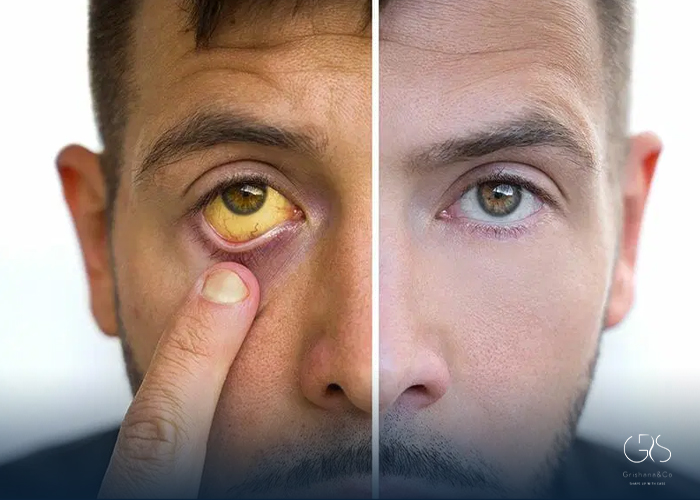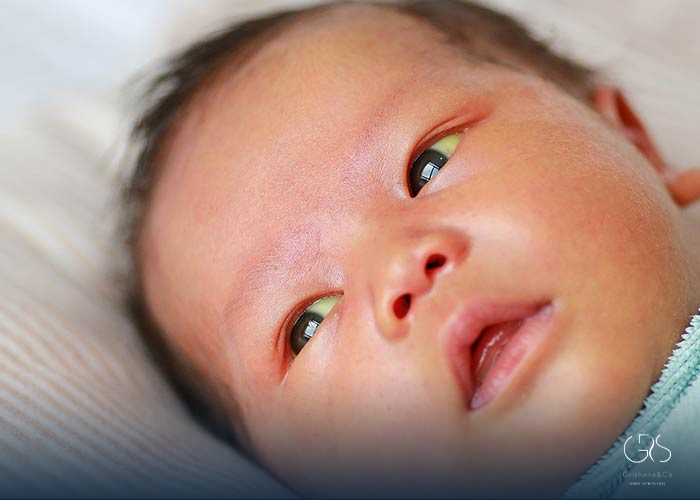The human liver produces a yellow pigment called bilirubin when it breaks down red blood cells. While elevated bilirubin levels are common and usually harmless, excessively high levels indicate underlying health issues that require medical attention. High bilirubin levels, also known as hyperbilirubinemia, occur when the concentration of bilirubin in the blood exceeds normal limits. In this article, we will discuss the causes, symptoms, and testing methods for high bilirubin levels.
Normal vs. High Bilirubin Levels
Bilirubin levels in adults typically range from 0.3 to 1.2 milligrams per deciliter (mg/dL). Levels higher than this may indicate hyperbilirubinemia [1]. However, in neonates, slightly higher bilirubin levels are considered normal due to the physiological processes related to the breakdown of fetal red blood cells .

Bilirubin Levels in Newborns
In some newborns, high bilirubin levels can cause jaundice. According to the American Academy of Pediatrics, about 60% of full-term babies and 80% of premature babies develop jaundice in the first week of life . Some babies may require treatment for jaundice, such as phototherapy or exchange transfusion.
What Can Cause Your Bilirubin Levels to Be High?
There are several conditions that can lead to hyperbilirubinemia, including:
- Hepatitis: Hepatitis is an inflammation of the liver caused by viral infections like hepatitis A, B, C or toxins and autoimmune disorders. It can lead to impaired liver function, resulting in elevated bilirubin levels.
- Cirrhosis: Cirrhosis is a late stage of scarring (fibrosis) of the liver caused by chronic liver diseases like hepatitis, alcohol-related liver disease, or fatty liver disease. As the liver becomes damaged and unable to function properly, bilirubin clearance may be affected, leading to elevated levels.
- Alcohol-Related Liver Disease: Excessive alcohol consumption over time can cause liver damage and inflammation, leading to conditions such as alcoholic hepatitis and cirrhosis. These conditions can disrupt bilirubin metabolism and result in high bilirubin levels.
- Hemolytic Anemia: Hemolytic anemia is a condition where red blood cells break down faster than they are produced. This excessive breakdown releases bilirubin into the bloodstream, overwhelming the liver’s ability to clear it efficiently.
- Gilbert Syndrome: Gilbert syndrome is a common genetic disorder that affects the liver’s ability to process bilirubin efficiently. People with Gilbert syndrome might experience fatigue. They might also develop mild jaundice, especially when they exert themselves, are stressed, have an infection, or have not eaten .
Symptoms of High Bilirubin Levels
Individuals with high bilirubin levels may experience symptoms such as jaundice (yellowing of the skin and eyes), fatigue, abdominal pain, dark urine, and pale stools. In severe cases, hyperbilirubinemia can lead to complications like brain damage (kernicterus) if left untreated.

Symptoms of High Bilirubin Levels in Babies
In newborns and infants, hyperbilirubinemia can cause jaundice, marked by yellowing of the skin and white parts of the eyes . Other symptoms in babies include poor feeding, lethargy, and irritability. If severe cases are left untreated, excess bilirubin can lead to significant neurological damage.
Testing Bilirubin Levels
Bilirubin levels in adults are typically measured through a simple blood test. In newborns, healthcare providers may use a non-invasive device called a transcutaneous bilirubinometer to assess bilirubin levels by placing it on the baby’s skin. For accurate monitoring, blood tests may be performed on newborns with suspected high bilirubin levels.
Testing Bilirubin Levels in Babies
If a baby’s bilirubin levels are high, treatment options include phototherapy [5], where the baby is exposed to special lights that help break down excess bilirubin in the skin. In severe cases, exchange transfusion may be required.
Conclusion:
high bilirubin levels may indicate an underlying health problem and require prompt attention. While mildly elevated bilirubin levels are common, excessively high levels should not be ignored. If you suspect high bilirubin levels or experience symptoms associated with hyperbilirubinemia, it is important to consult with a healthcare professional. Prompt diagnosis and appropriate management are crucial for maintaining overall well-being.
Sources
- Mayo Clinic, Bilirubin Test
- Centers for Disease Control and Prevention, What are Jaundice and Kernicterus?
- Neonatal Jaundice and Hyperbilirubinemia, Hyperbilirubinemia Without Jaundice in a Neonat
- Medlineplus, Bilirubin Blood Test





